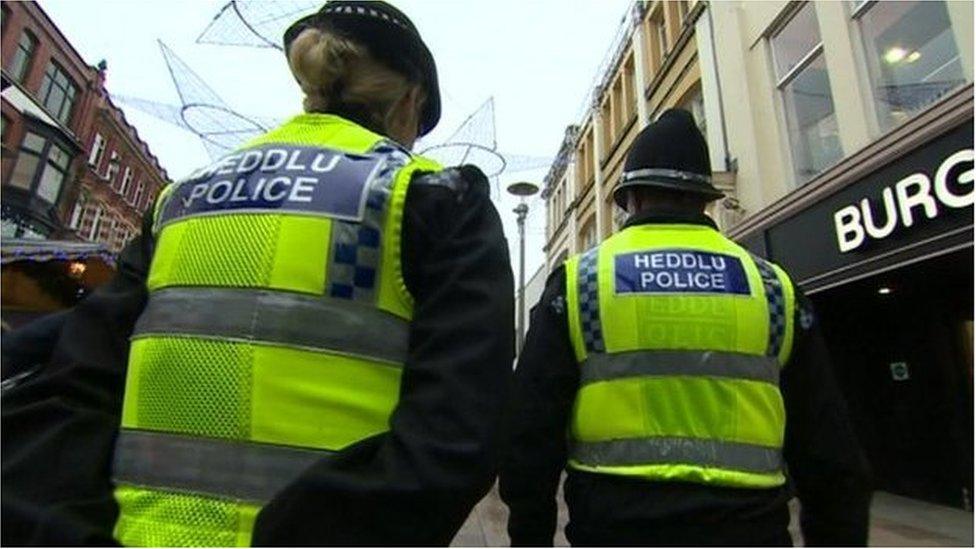Police and crime commissioner wins for Plaid and Labour
- Published
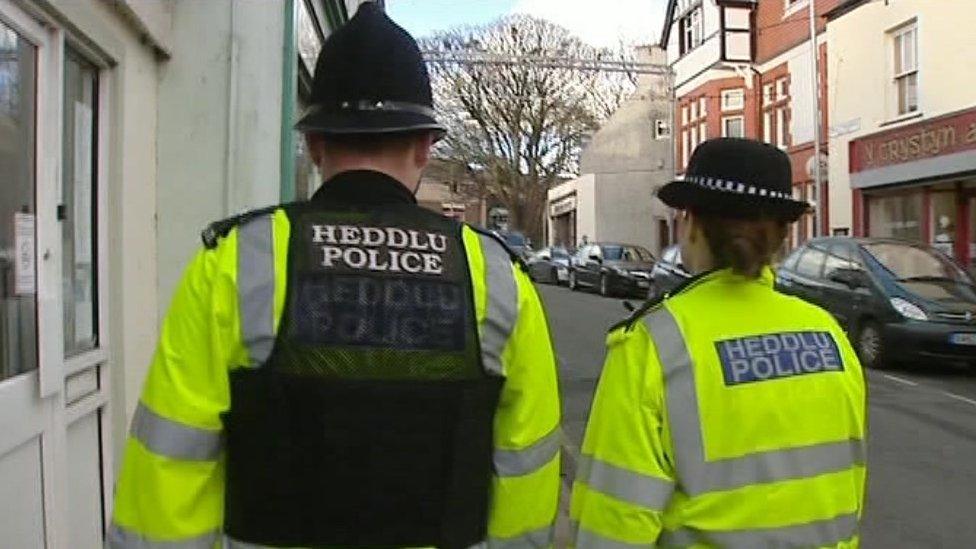
Plaid Cymru and Labour have scored two wins each in the elections for police and crime commissioners in Wales.
Plaid's Dafydd Llywelyn beat the incumbent Tory commissioner Christopher Salmon in Dyfed-Powys.
His colleague Arfon Jones won in North Wales, where independent Winston Roddick did not seek re-election.
Jeff Cuthbert took Gwent for Labour, replacing independent Ian Johnston who also stood down. Labour's Alun Michael was re-elected in South Wales.
Mr Michael said he was "very pleased to have secured over double the votes of my nearest rival" and he saw the results as "an endorsement of the positive policies on policing and community safety that have come out of the first three years of this role".
Mr Llywelyn, who previously worked for the Dyfed-Powys force, called his election an "honour and a privilege".
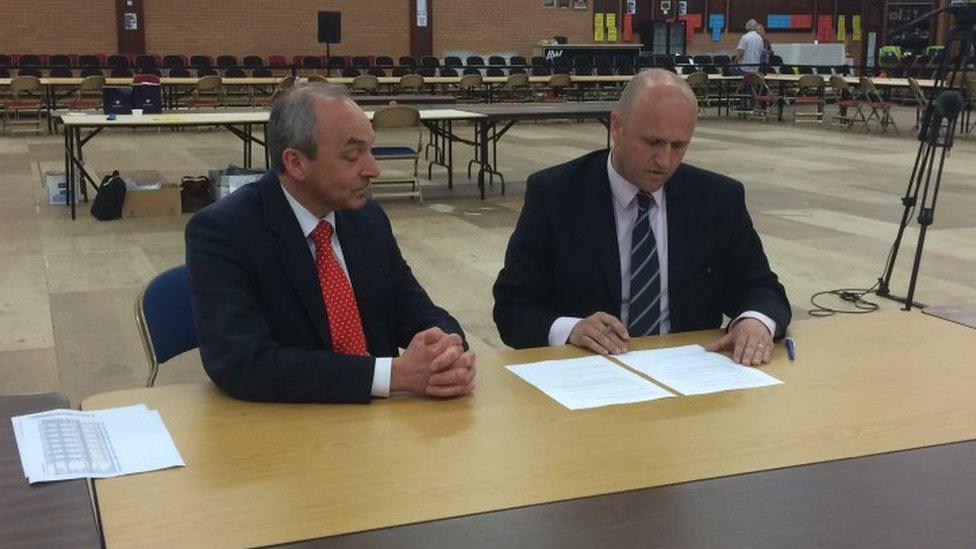
Dafydd Llywelyn (right) is sworn in after beating Christopher Salmon in Dyfed-Powys
"It's a police service that I served for 13-and-a-half years as their head of intelligence analysis, and I am looking forward to the challenges ahead as the new police commissioner for the force," he said.
Congratulating his successor, Mr Salmon said: "Securing a second term was always going to be hard, this was a tough fight.
"I am privileged to have worked with many dedicated officers and staff who are so committed to their duty, I hope people will feel that I have done mine."
'Superb victories'
Mr Jones said he was "totally overwhelmed" by the support he had received.
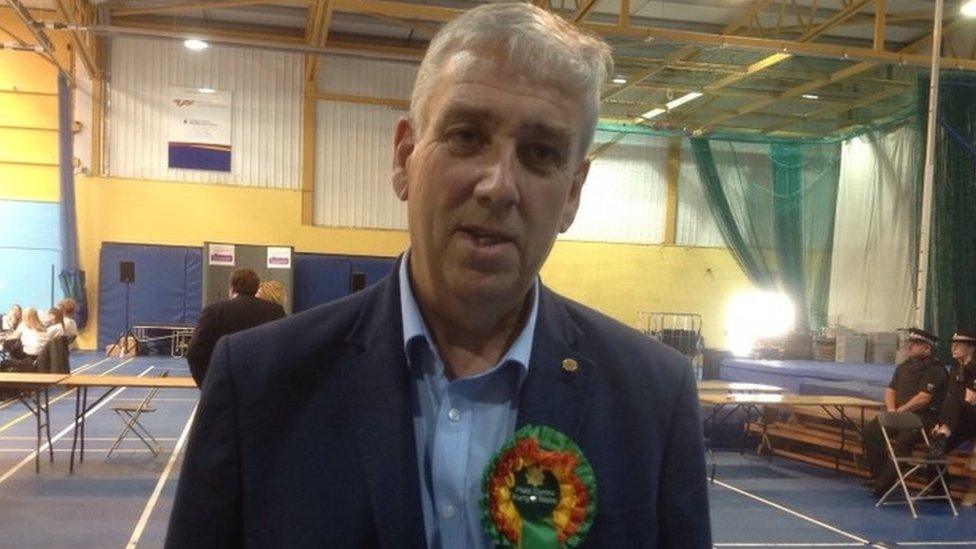
Arfon Jones was the second of two Plaid Cymru PCCs to be elected
"I'm very grateful to the people of north Wales who voted and supported me, on both the first and second preferences," he said.
Plaid Cymru leader Leanne Wood said her party had "secured strong results" in all four force areas.
"Whilst each of the other main parties in the assembly lost ground, more and more people voted for Plaid Cymru because they trust us to always stand up for Wales and do what is right for our communities," she said.
Plaid Cymru did not put up any candidates in the police and crime commissioner elections in 2012.
Labour First Minister Carwyn Jones praised Mr Michael and Mr Cuthbert for their "superb victories".
"I know they will be brilliant representatives for their areas and they will work hard to keep their communities safe and secure," he said.
Turnout compared to the first elections in 2012 was boosted by holding the polls on the same day as the Welsh Assembly election, last Thursday.
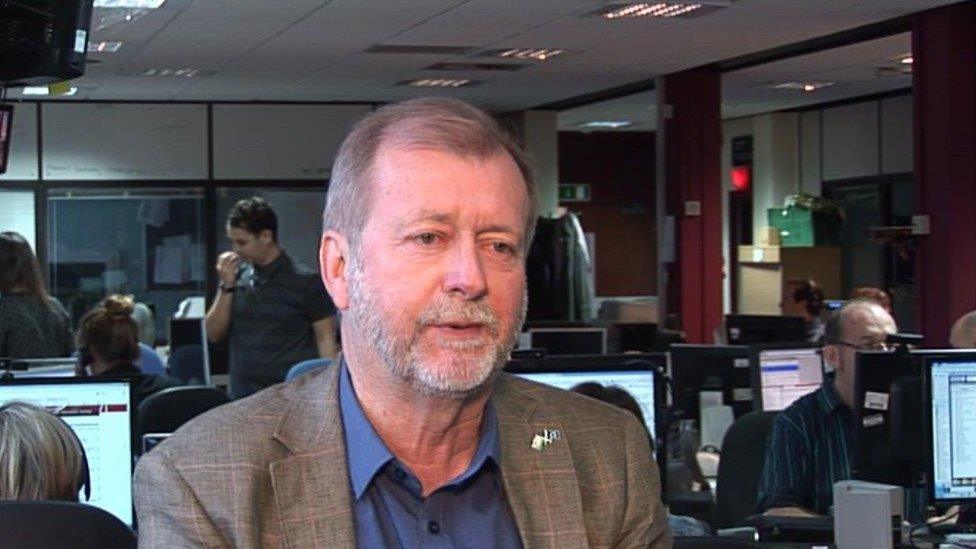
The new Gwent PCC Jeff Cuthbert is a former deputy assembly minister and Labour AM
Based on a count of valid votes, turnout ranged from 49.1% in Dyfed-Powys to 38.3% in Gwent, compared to figures of about 14-16% in each of the four force areas in 2012.
Voters were asked to choose their first and second favourite candidates.
All four contests went to a count of second preference votes, after no candidate won at least 50% of the first preference votes.
Across England, the Conservatives and Labour almost swept the board, winning 33 of the 36 contests.
The 12 independent commissioners elected in 2012 were reduced to three.
Turnouts in England - where some areas also held local elections - ranged from 33.2% in West Yorkshire to 17.4% in Durham.
Although turnouts in Wales were higher, returning officers reported large numbers of spoilt or blank ballot papers.
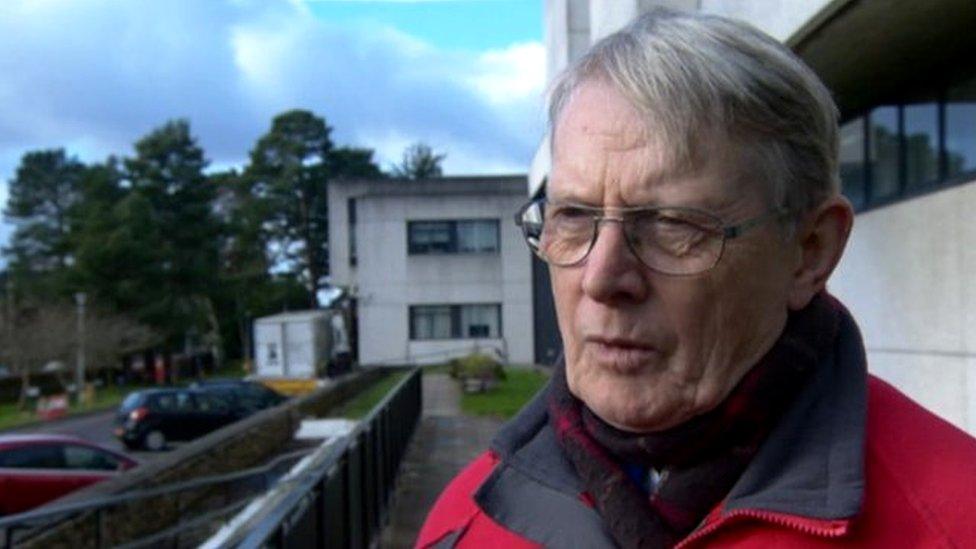
Former Welsh Secretary Alun Michael was first elected as South Wales PCC in 2012
Monmouth MP David Davies said there had been "widespread confusion" about the use of the second preference vote, with many people wrongly assuming it was mandatory.
Meanwhile Mr Michael said: "The number of spoilt ballots is not the issue. It's the fact that people feel they have not had enough information about this election.
"It's a disgrace that the home secretary will not back down and allow a free postal communication from candidates."
See more detailed results for:
- Published7 May 2016
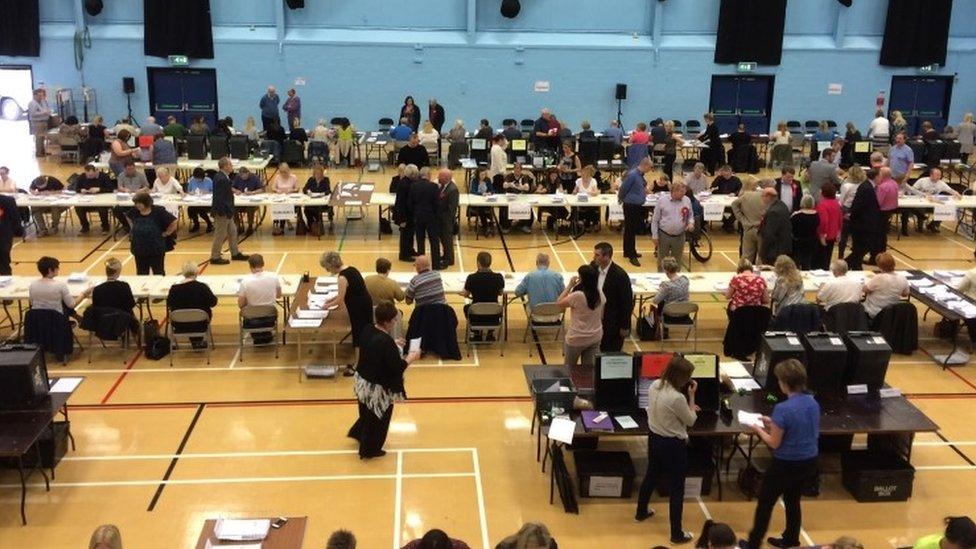
- Published8 May 2016
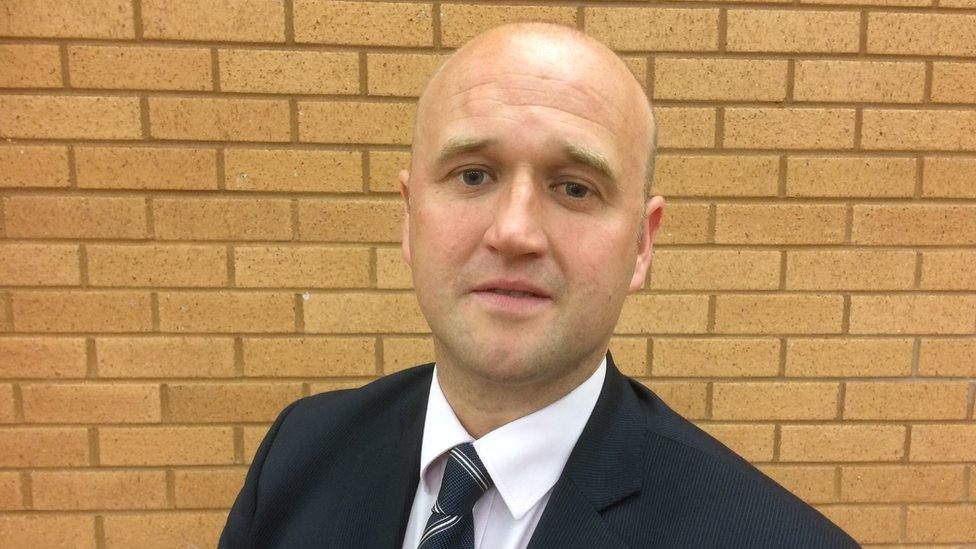
- Published8 May 2016
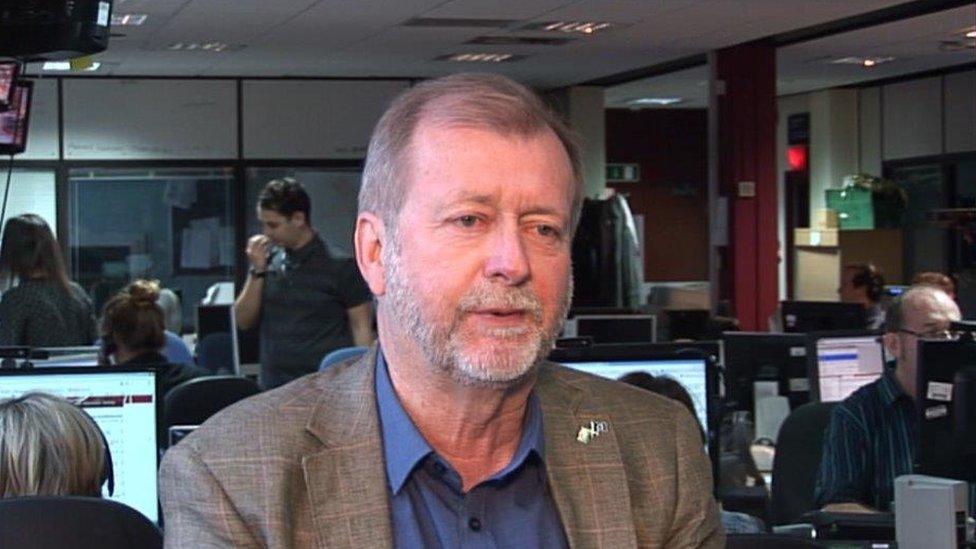
- Published8 May 2016
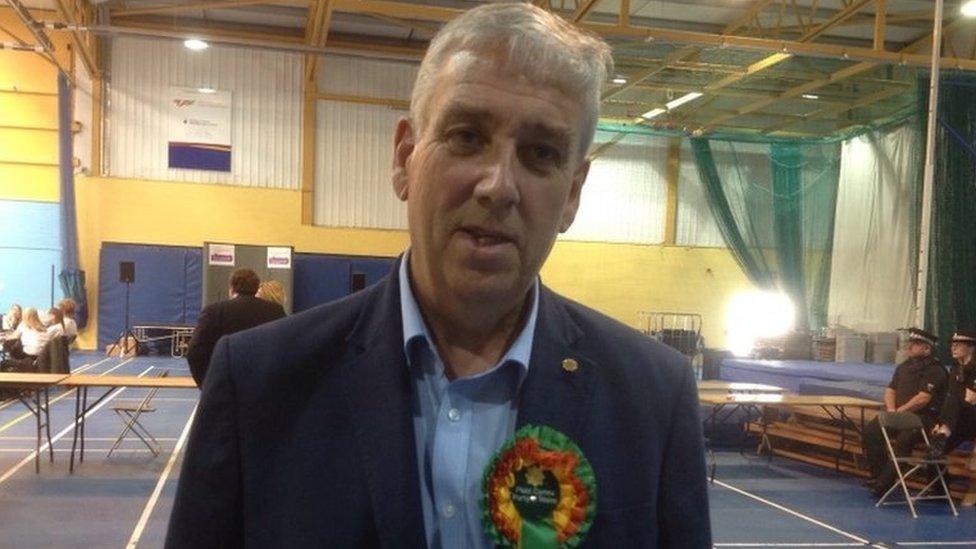
- Published8 May 2016
